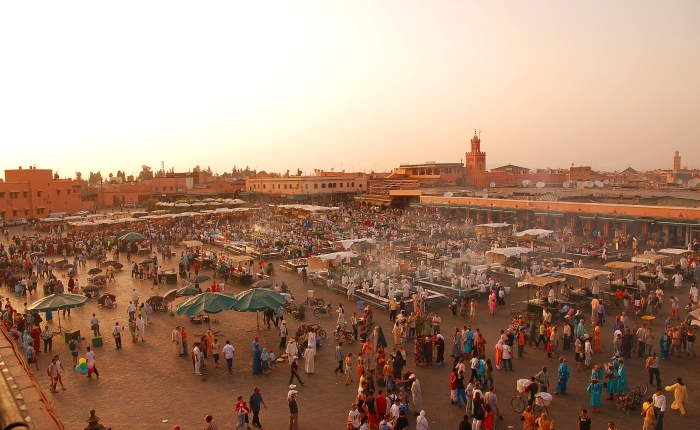When I first read The Drifters, maybe 15 years ago, it became an instant classic in my mind, and a book that I had always considered in my top-3 favorite novels of all-time. It was incredible, and encompassed everything that there was for the traveler, for the person who was not quite sure where their place in the world was yet, and was willing to go and find it. Among travelers, The Drifters should be considered the bible. While a book like The Beach did its own thing for a new generation of backpackers, The Drifters has always been there for us to take along on long train rides, time at the beach, or lazy days between bar hopping, in whatever locale you could think of.
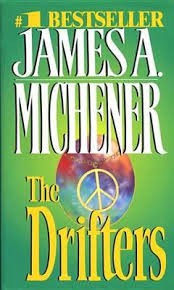 Since I first read this James A. Michener classic, so many things have changed. Then, I was first starting to travel, having completed my first six-month journey across Europe. But I never felt complete after that first journey, and knew that I needed to be back out there, my life strapped to my back, and looking for more. The Drifters was a book that resonated with me, because I no longer had to feel out of place among my friends, who had chosen their life paths at 20 years old, and knew what they were going to be doing. I had no clue. But there were many, many others like me, so I felt good in my need to keep searching.
Since I first read this James A. Michener classic, so many things have changed. Then, I was first starting to travel, having completed my first six-month journey across Europe. But I never felt complete after that first journey, and knew that I needed to be back out there, my life strapped to my back, and looking for more. The Drifters was a book that resonated with me, because I no longer had to feel out of place among my friends, who had chosen their life paths at 20 years old, and knew what they were going to be doing. I had no clue. But there were many, many others like me, so I felt good in my need to keep searching.
I started reading The Drifters again while I was in Honduras, figuring the tropical setting would be a good place to see again what the characters that I had grown to love got up to during their years of travel across Europe and Africa. To relive their trials and tribulations, their glories and successes, and their soul-crushing failures. I again wanted to sit with them in The Alamo in Torremolinos and listen to music, run with the bulls with Joe and Mr. Holt in Pamplona, or watch the elephants with them in Mozambique.
Reading the novel again, it was easy to once again become engrossed in their lives. And seeing them now from the perspective of an older man, one who has lived, and one who has pretty much found what he is looking for, allowed me to see these characters as they truly were, to see their innocence and views on the world in a different light. Maybe upon my first reading, I was more like one of the characters, whereas now, I am probably in between one of them and Mr. Fairbanks, the older narrator of the novel who is connected to each of the six young people in different ways, and keeps meeting up with them at certain points in their journey. Reading it again allowed me to recapture some of my own feelings from being on the road for all those months and years in my youth, remembering how I looked at the world in my younger days, remembering the need to find something more important than the typical life that home offered me. Sure, my motives may have been different from the six characters, and the time of their travels was during one of the most intense moments in American history (the book was published in 1971, during the Vietnam War, and this conflict plays a major role in the novel), but the result was the same: we all left home and hit the road to find inspiration.
I am going to write about the characters in the novel as though the reader of this review has read the novel as well. Since it is not a new book, I am going to assume that most people have already read it. So there will be spoilers throughout this review, but I wanted to make sure that I was able to completely write about the characters, instead of cutting myself off, trying not to ruin anything. I am just going to focus on the central six, even though there are other great characters in this novel that play a smaller role, like Big Loomis and Jemail in Marakech, Clive and his purple satchel full of new records, or Jean Victor, who really gets things started in getting the six together. I won’t make specific mention, except in passing, of Fairbanks and Holt, either.
Joe: Joe has been drafted by the American military, and if he reports, will be shipped off to Vietnam. He does not believe that the war is a just war, and he refuses to comply, therefore becoming a draft dodger. His method of escape is to go to Europe, where the military can’t find him. He understands that this decision comes with severe consequences, namely that if he ever returns to the States, he will be imprisoned for dodging the draft. He has such strong convictions about this, that he leaves the US, probably forever. With the help of Mr. Fairbanks and a girl who turns out to be Gretchen, Joe ends up in Torremolinos, Spain, a haven for young people at the time. Plane loads of people would end up in the Spanish beach town, typically for 15-day all-inclusive vacations, that for many people, ended up lasting much longer. It was a place full of beautiful girls, typically German or Scandinavian, and the party scene was non-stop. It doesn’t take long before Joe, pretty broke to begin with, starts work as a bartender at The Alamo, a tiny, dingy bar in Torremolinos, that becomes the central hangout for the drifters during their time in this part of Spain.
Joe is in a way, a prototypical American boy, but at the same time, his strength comes from his silence and his convictions in his belief. Throughout the novel, he is one of the more sturdy characters. He manages to play a steadying role in the lives of the gang, since he seems to be one of the more emotionally stable, and his life tragedy that got him to Spain is something that he continues to believe in. He is not shy about telling people that he is there to avoid the draft, and will verbally battle anybody who feels that he is a coward for stepping out on his country. This is only a point of view held by the older characters, as the young people all agree with him, that the war is unfair, and he should not have to sacrifice his life for a decision (that they believe is poor- I don’t want to get too much into the conflict of Vietnam, and whether it was right or wrong) made by his government. While Joe is doomed to never return to his home, he easily makes a life in whichever spot that he lands in. There is always the awareness that even if the other drifters find what they are looking for, and decide to one day return to their homelands, he will not be able to do so. He will be a drifter forever, or he will need to go to jail. This adds a certain cloud of doom over Joe, one that he impressively never lets interfere with his life, and his living of it.
The issue of his draft status comes up a few times during the novel, and he must make further decisions on what to do about it, to get the government off his back. They manage to track him down in Mozambique, and this leads him to choosing if he should take the drastic draft dodging tactics known as Little Casino or Big Casino. Joe is willing to do anything to not go to war, further endearing us to his position, as he definitely sticks to his guns throughout, despite the outside pressures he must face and defeat in his avoidance of the war. Joe is strong enough to not be beaten by his own government, even if it means severely damaging his future.
Joe’s quest is different from the others, because for the majority of the novel, he is not actively seeking inspiration. He is avoiding something back home. In the end, however, he finds what could become his passion while they travel around Africa, and at the end of the novel we get the impression that this is something that he will pursue in his future travels, as he will begin his journey across Asia, trying to get to the Shinjuku district of Tokyo.
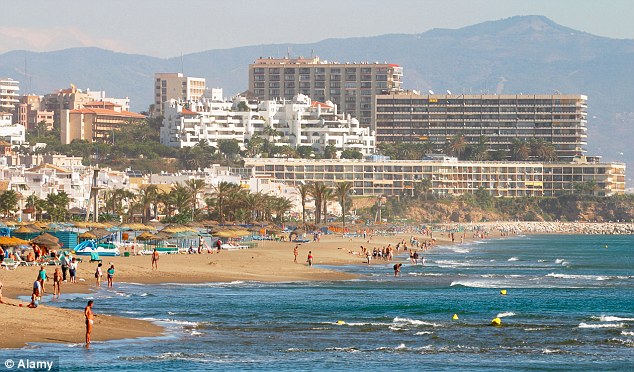
Britta: It is difficult to read this novel and not consider Britta to be one of the favorite characters. She is the beautiful Norwegian girl from the northern town of Tromso, who is simply tired of the darkness, and needs to always be in the sun. She is trapped by her environment in Norway, and saves up her money to go to Spain in order to escape it. The descriptions of Britta make it easy to understand how the majority of the people who first see her, fall in love with her. She grabbed the attention of nearly every male in the novel, and typically from the first time they laid eyes on the impeccably blonde girl with the amazing figure. And to top it all off, she is as sweet as she is beautiful, making her the perfect girl to fall in love with.
In her desperation to escape the dreary and sunless winters of Tromso, she immediately knows that she wants to stay for longer than the 15 day escape she paid for. Immediately upon arriving in Torremolinos, she starts looking for work. A difficult prospect, since there are hundreds of beautiful girls that want jobs so that they can stay in Spain a little longer. Luckily for Britta, she meets someone who is leaving her job, and sets Britta up as a waitress at The Alamo, and she starts sharing the tiny apartment with the unique sleeping arrangements and the famous sleeping bag on the floor. It is not long before Britta begins her long affair with Joe, taking the most gorgeous girl in Torremolinos off the market, to the chagrin of every man who has laid eyes on her.
It is easy to cheer for Britta throughout the novel, because she manages to maintain her innocence throughout it, and in a way, manages to stay true to herself. She wants the sun, and to have fun, and to see the world. She knows that she may not be destined for great things, and that married life would be a good life for her, but only if it is on her own terms, and not simply out of obligation or desperation. She is partially driven by her father’s lifetime obsession with the island of Ceylon, a place he never visited, but became obsessed with, and she takes on this goal of his, determined to make it there at some point, by whatever means necessary.
For a time in the novel, she breaks apart from the gang, because she falls in love with the much older Holt in Pamplona, and she stays behind after he is gored by a bull and must spend some time in a hospital. Eventually, she rejoins the group in Morocco, and we see that her dream of getting to Ceylon will come true. She has even sent a ticket to her father, to meet her there, at the end of the novel. Britta has achieved what she wanted from the road, and all of her adventures. Despite her young age, she matures quite a bit during the story, even getting to end the novel with one of the more poignant quotes, encompassing the theme of the whole story, that “I now believe that men ought to inspect their dreams. And know them for what they are.” This rings true with the reader long after the book is finished, because she is right. That the dreams are often just that: dreams. And that they are not perfect, and that even on the adventure of a lifetime, tragedy, and real life, can often get in the way.
Cato: Cato is an interesting character, as he brings in a more embattled attitude to the group. A young black man from the US, he flees to Europe after a violent incident at a church, from which he gained a certain level of fame/infamy due to a picture of him in a newspaper, wielding a machine gun. Cato is consistently aggressive, and carries with him a massive chip on his shoulder. His concerns is with the plight of African Americans in the States, and the brewing tensions that were gripping major cities at the time. He felt that there was a war coming, and he would educate himself in order to be one of its leaders.
Cato is interesting, because while he lives the carefree life of the other drifters, he also carries with him a hostility that none of the others share. He is forced to deal with racism, even in the free living spaces of Europe, and especially due to his relationship with the white Monica. There is a darkness to the character of Cato, and as readers, we know that he is ready to blow up at any moment. Cato is a true revolutionary, ready to take to the streets to get what he believes his people have earned, and that makes him scary. He is willing to push the boundaries, and he is willing to fight with whoever he needs to, to get his point across.
By the end of the novel, we are almost appalled with his behavior, specifically towards his friend Yidal, as Cato becomes more involved with Islam, starting to believe that a major step for blacks in America will be to push away the Jews.
His tenderness comes from his torrid relationship with the uber-volatile Monica, the most dangerous character in the book. He truly falls in love with her, and is controlled by her, managing to live through her passions and increasingly rage-induced mood swings. He wants to save her, even if she cannot be saved. He is along for the ride with her, and he is willing to experiment with her along the way, specifically with drugs, which I will discuss later on.
Cato is looking for a solution to his problems back home, and he believes, that by the end of the novel, he has found them. He will reinvent himself, and return to the States and become a force to be reckoned with, for good or for bad, in the battle that he feels needs to be fought in his homeland.
Yidal: As Yidal nears his 21st birthday, his central conflict is to decide which country to remain a citizen of. He hold three passports, and must decide which one he will keep, and which other two he will abandon. He has the choices of the US, Israel, and Britain. Growing up splitting his time between Detroit and Israel, Yidal is a brilliant student in engineering, and gained fame in Israel during the Six Day War, in which thanks to him, a small group of Israeli soldiers were able to hold off and destroy several Egyptian tanks. Yidal’s conflict is interesting, because he needs to decide who he is, and which country he truly belongs to. He knows that there are problems for the Jewish people all over the world, and must choose where he can be the most safe, and the most help, to the cause of his people.
Yidal battles frequently with Cato, and all of the other external pressures in his life. Everybody has an opinion on which country he should officially be a part of. He feels pressure from his family, and his grandfather, as well as the experienced opinions of Holt and Fairbanks. But it is up to him to decide, and he wavers back and forth on his decision.
In Yidal, we also have the one character who leaves the gang more than once. He is forced by his grandfather to go with him while they are in Pamplona, and he is also forced to quickly leave Marrakech after it is discovered by outsiders that he is Jewish, a crime punishable by death in Morocco. He is also the one character that does not get a love interest within the group. Yidal gets plenty of girls over the course of the novel, including a nice string of Swedish girls while in Torremolinos, but Yidal is never able to get over the initial love he felt for Britta, upon first laying eyes on her. While Cato felt the same thing, he moved on quickly when he met Monica. Yidal never moved on, and was never able to be with Britta, even though she was always in the back of his mind. He takes this mild heartbreak in stride, as all of the drifters are able to do. They can move on from relationships with a carefree attitude that never seems to stop confusing Fairbanks.
In the end, Yidal is also able to find his solution. He decides on Israel, primarily because of a savage beating he gets at the hands of Cato. He knows that America is no longer the place to be, especially if Islam becomes the religion of the African Americans who are angry at the state of things in the US. Leaving Marrakech under hasty circumstances, he leaves for Israel, and his new life as a citizen of only one country.

Gretchen: Even though she is introduced early in the novel as the girl who helps Joe escape the States to dodge the draft, Gretchen is the last of the characters to get to Torremolinos, and become a part of the gang. A highly educated, and brilliant girl, Gretchen made waves in the US before her eventual leaving. She was a part of political campaigns, and was someone who was fighting the good fight in the States. She becomes increasingly jaded as real-life events impact her views on what America is becoming, specifically the assassination of Bobby Kennedy.
Almost too smart for her own good, Gretchen is wrongly accused of a crime, and is faced with an abusive night in prison at the hands of the police. She is held without crime, and is sexually assaulted by the officers. While she goes against the wishes of several people, including her family, she makes the incident public, and is faced with a police cover up to protect themselves. Without the support of her family, Gretchen decides to leave it all behind, and heads to Spain as almost a broken person, simply needing to get away from the increasing wrongs that she sees in her home nation.
Gretchen is the one who buys the legendary yellow pop top Volkswagen bus, that almost becomes a character of its own in the novel. She does some wandering of her own, even before arriving in Torremolinos, willing to meet new people along the way, and spending all of her nights in her little van, designed with bunks for sleeping. Eventually she wanders into The Alamo, and meets up with the gang, becoming a part of them. Gretchen is always guarded, especially when it comes to men, due to her incidents with the police, that have left her mentally scarred. She does rediscover her love of singing, as she entertains the crowds with her large repertoire of haunting ballads by Child. She always announces her songs with a simple “Child 107,” or whichever number the song may be in the collection of works that was given to her by Fairbanks earlier in her life.
While Gretchen does indulge, like the rest of the gang, she always seems to have a maternal role among the group. She is extremely smart, and is looking for her inspiration on what to write about. She first went to Europe to study the 100 Years War, but eventually lost interest in this, causing her to become one of the drifters. She needs something new to become engrossed in, and to write about for the furthering of her education. She eventually finds this upon learning more about the Children’s Crusades, and upon gaining her moment of enlightenment, she knows that it is time for her to return to Boston and live her life. Having her give the pop-top to Joe is one of the sadder moments in the novel, since the car was so much of who she was. But after what she saw during her time in Africa, she knew that the journey was over, and that she had to move on. When something bad strikes, it shatters the illusion of the dream, and Gretchen is smart enough to know this.
Despite her guarded nature, Gretchen does find love, in the case of Clive, and eventually, Joe. She is not a promiscuous girl, as so many were at the time, but she chooses her romances carefully. We are happy when she gets together with Joe, as they are both solid people, and go make a real go of a relationship. But like all good things, and all things in The Drifters, it must come to an end.
Gretchen found what she was looking for, and she stayed true to herself in her pursuit of it. Sure, she may have given into pressure from Monica to try new things, like LSD, but she does these things on her own terms, and with purpose. She is the most driven of the drifters, since she truly knows what she seeks.
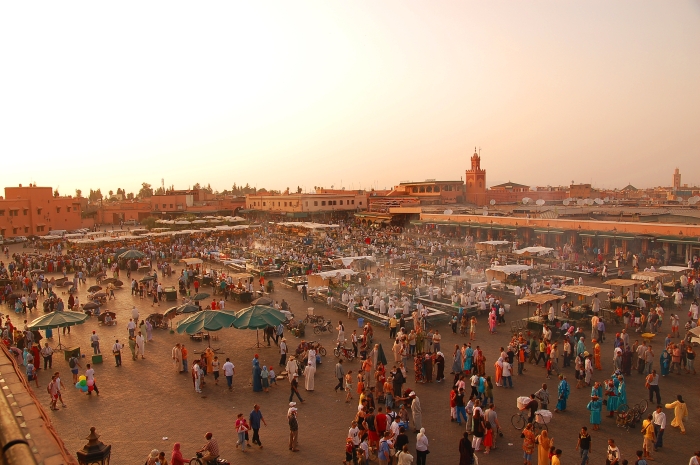
Monica: From her introduction in the novel, we know that Monica is the true wild card in this story. The daughter of an English lord in the fictional African nation of Vwarda, Monica becomes too beautiful, too quickly, and she is always dangerous. From smoking pot at a fairly young age, to flirting with visiting dignitaries, Monica has sex with one of her teachers, and causes problems wherever she goes. She is forced out of boarding schools in England, and creates trouble in Vwarda, including a not-so-secret affair with a powerful Vwardian official. She is driven towards escape, especially through drug use. Monica essentially runs away, and she is the member of the gang without any real purpose. She just wants to have a good time, and be away from her family, and the expectations they have placed on her.
Monica never needs to work, as she has money from her family, giving her more time to be a wild child. She hangs around The Alamo, and quickly hooks up with Cato, for what will be an affair that lasts until the end of the novel.
Even from the beginning, we know and understand that Monica is doomed to be the tragic character of the novel. She is too carefree, too vicious, and too wiling, to be able to escape this journey unscathed. She has a way of being manipulative, and of getting her own way. She craves action and desires adventure, and will stop at nothing to get it.
Monica smokes more weed than anybody else, and is the first to try LSD, convincing Cato to come along on her trips with her. It is easy to tell that she does not just use drugs recreationally, but is using them to achieve an escape. To find some kind of perfect euphoric state where she can feel bliss all of the time.
One of the background issues that looms over the entire novel is heroin. A drug that gained a surge in popularity during this era, it always stands as the ultimate in drug abuse. Once you go to heroin, there is no going any further. And it looms in the back of Monica’s mind, and we know that at some point, she will dabble with “Big-H”, probably with terrible results. She even taunts Fairbanks one night, stating that she would guarantee that all of the drifters would end up trying heroin before the end of the year. Well, she was wrong about that, but those that did use it faced the tragic consequences of the drug.
In Mozambique, Monica and Cato begin snorting heroin, a pastime that is looked at with shocking indifference from everyone. When Gretchen and Joe start to notice track marks on Monica’s arm, they learn that she has begun popping, the act of injecting heroin under your skin, leaving marks on her pale, beautiful skin. They are concerned with her use, and know that it will be only a matter of time before she begins mainlining, which is shooting heroin directly into your veins. While they try to get her to stop, Monica is blase about the whole thing, knowing that heroin was the natural progression, and natural end point, for her. She tries to convince them to join her and Cato, because she claims that it is the best drug out here, and that she has control over it. This is one of Monica’s issues, believing that she always had control over things that were far out of her control. And this, of course, leads to her downfall, but also allows us to see how she really is.
When Cato nearly dies of an overdose after trying to mainline to please Monica, she never stops, and never even slows down in her use. She begins injecting her veins regularly, even creating an unhealthy abscess on her arm that could become infected and cause the loss of her arm if it had not been treated by a woman in Mozambique. With a drug so powerful, it is not long before she is addicted, causing her to have violent mood swings, and lashing out at the people who care most about her. She will not listen to any voices of reason, including Fairbanks, whom she had trusted for the majority of her life. Nobody can save her, regardless of their attempts. Curiously, Fairbanks describes how she almost became more beautiful during the initial days of being strung out, more slender, and her paler skin being even more luminescent. She has chosen the path, and we know that it will end in her doom. The wild child has found her passion. Unfortunately, it is one that will cost her her life.
Monica dies. Not from a heroin overdose, as we would have expected, but from hepatitis caused by her using her dirty syringe too often. She could have been saved, had the others been paying closer attention to her. In a way, I found it odd that the gang took the blame for her death, thinking that they could have saved her, even if they had given her a clean needle. But Monica could not be saved, because she did not want to be saved. She was reckless with everything, including the hearts of those around her, and her own life. She spend her last weeks in Marrakech strung out on heroin and the potent hash cookies that made their ways around the hotels. She ostracized those around her, including Cato, and fled their hotel for a wild few days, high all the time, and being used sexually by a shocking number of men. When the gang manages to track her down, they only find her body, grotesque from the drugs and the malnutrition, a faded version of the wild Monica they had all loved over their time traveling together.
///
It is the death of Monica that brings an end to the dream for the drifters. While they could have continued traveling together, waxing philosophy about the state of their lives, and of their world, everybody knew that it was over. Monica dying had crashed them back to reality, no matter how hard they had tried to escape it. Real life always found a way to creep into their dreams, but now, it had come crashing through the wall, and the could no longer avoid it.
It was selfish of Monica to do what she had been doing. Nobody truly expected her to become a junkie, but we also must look at her actions as being the completion of her quest, and her journey. She was looking for the true escape, and she found it. Perhaps even she never imagined that it would be as a skeletal version of who she once was, being passed around by men for money, strung out to the point where she was mostly catatonic, every day breaking the hearts of the people who loved her dearly. But did she ever really love them back? Was Monica as good a friend to the others, as they had been for her? Would she have worried as much had it been someone else who fell under the spell of heroin?
We will never know, but we do know that by her dying, by sticking the rusty needle into her arm too many times, she broke up the gang.
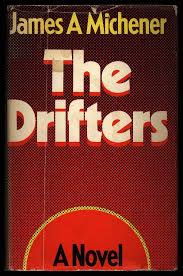 Gretchen found her inspiration, and was going to return to Boston. Probably to change the intellectual world. Cato was going home to start a revolution he could see in his mind. Yidal was going to Israel to be who he really was. Monica was dead, hastily buried in Morocco, never letting us know what her true potential could have been. Britta found her dreams, heading towards Ceylon with Holt, and undertaking part of Joe’s journey. She would stay in the sun. Joe had to keep moving, to keep drifting, as he headed towards Japan in the yellow pop-top that Gretchen simply gave him.
Gretchen found her inspiration, and was going to return to Boston. Probably to change the intellectual world. Cato was going home to start a revolution he could see in his mind. Yidal was going to Israel to be who he really was. Monica was dead, hastily buried in Morocco, never letting us know what her true potential could have been. Britta found her dreams, heading towards Ceylon with Holt, and undertaking part of Joe’s journey. She would stay in the sun. Joe had to keep moving, to keep drifting, as he headed towards Japan in the yellow pop-top that Gretchen simply gave him.
All in their own way, they were done. We are left never knowing if Joe got all the way to Tokyo, or if the tender friendship between Gretchen and Britta was continued, or if Britta ever convinced Holt to marry her, or what it was like for her father to be in the place he had dreamed of his whole life.
Dreams were realized, and dreams were shattered, partly because of the ultimate freedoms they had been able to experience.
The Drifters is an amazing novel, just as much now as it was when I first read it. We love the characters, all for different reasons, and we also fall in love with the places they visit. This novel is a true classic, telling us about the wonders of the road, but the dangers of unchecked freedom.
Imagine what could have happened if Monica never used heroin?
